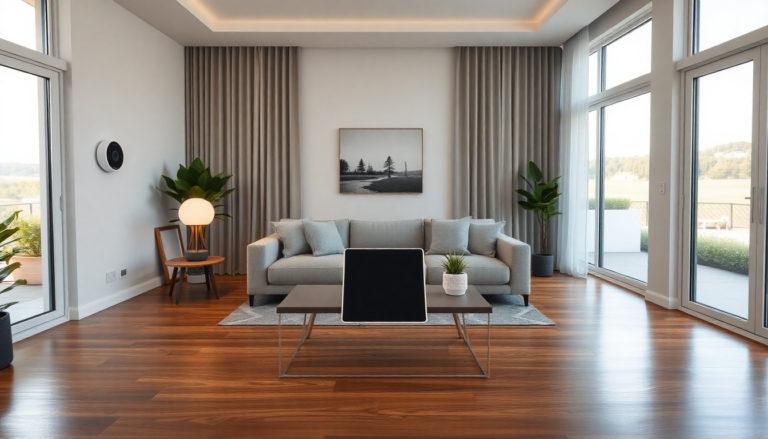Argomenti trattati
As smart home technology continues to evolve, many homeowners are increasingly drawn to the convenience of automating their living spaces. But let’s face it—who hasn’t felt a twinge of concern over privacy, especially with devices that are ‘always listening’? The good news is that you can enjoy the benefits of a smart home while still keeping your privacy intact. In this article, we’ll explore the privacy issues surrounding smart devices and offer some alternative solutions that prioritize both your comfort and security.
What’s Behind Your Privacy Concerns with Smart Devices?
The biggest worry many people have about smart speakers and similar gadgets is the idea that they might be constantly recording our conversations. While these devices are indeed designed to listen for specific activation phrases, they don’t continuously send audio to external servers. That said, the risk of accidental activations can understandably raise alarms. Imagine this: your smart device mishears its wake word and records a snippet of your private conversation. It’s enough to make anyone reconsider having such gadgets around.
Moreover, the frequency of these unintended activations can be surprisingly high. In fact, a device might trigger once an hour, potentially capturing snippets of sensitive discussions. If the thought of having devices that could inadvertently eavesdrop makes you uneasy, rest assured—there are alternatives that can deliver similar functionalities without the nagging worry of constant surveillance.
Smart Alternatives to Always-Listening Devices
One effective way to enjoy a smart home while keeping your privacy intact is to consider using smart displays. Many of these devices come with microphones but also offer physical switches to disable the mic completely. This means you can keep enjoying the benefits of visual interfaces for controlling your smart home without the fear of being overheard.
Take the Google Nest Hub or Amazon Echo Show, for example. These devices allow you to turn off audio recording with a simple switch. With the microphone disabled, you can still manage various smart home controls—from adjusting lighting to streaming music—using a user-friendly touchscreen. I’ve had a great experience with the Lenovo Smart Display, which even features a physical camera slider, reinforcing the idea that you can have convenience without compromising privacy.
Another practical option is to use your mobile devices for smart home control. Both Android and iOS platforms offer customizable smart home widgets that can be accessed directly from the lock screen. This feature lets you manage your devices without needing to rely on a dedicated smart speaker. For instance, if you have Philips Hue lights, you can create shortcuts on your home screen for quick access, making it easy and efficient to control your environment.
Mobile Assistants: Your Smart Home Helpers
Beyond widgets, your mobile devices are equipped with integrated voice assistants like Google Assistant and Siri, which can effectively manage your smart home commands. By opting to use your smartphone instead of a dedicated smart speaker, you maintain a level of control over your home without the ever-present listening aspect that many find unsettling. For Android users, Gemini stands out as an excellent alternative, seamlessly handling smart home commands while understanding natural language better than some smart speakers.
Plus, these mobile assistants can be set up to execute a series of commands with just one instruction, creating a streamlined experience when managing your smart devices. You can enjoy the ease of voice control without compromising your privacy. By keeping the conversation on your phone, you significantly reduce the risk of unwanted recordings.
In the end, while smart speakers offer a myriad of functionalities, they aren’t your only option. A combination of smart displays, mobile applications, and voice assistants can provide a comprehensive smart home experience without the privacy concerns typically associated with always-listening devices. The key is to prioritize what matters most to you—convenience without sacrificing your peace of mind.
Conclusion: Finding Balance in Smart Home Technology
As we step into the future of smart home technology, it’s crucial to remain vigilant about privacy concerns. Although smart speakers can enhance our living spaces, they aren’t the only solution for creating a connected home. By exploring alternatives like smart displays and mobile assistants, homeowners can build a smart home that aligns with their privacy preferences. In this ever-evolving landscape, taking control of how your devices listen and respond can lead to a more comfortable and secure living environment. After all, you deserve to enjoy the benefits of technology without unwanted intrusions.

